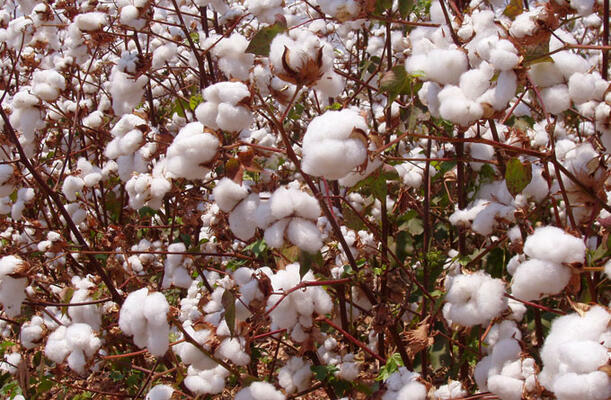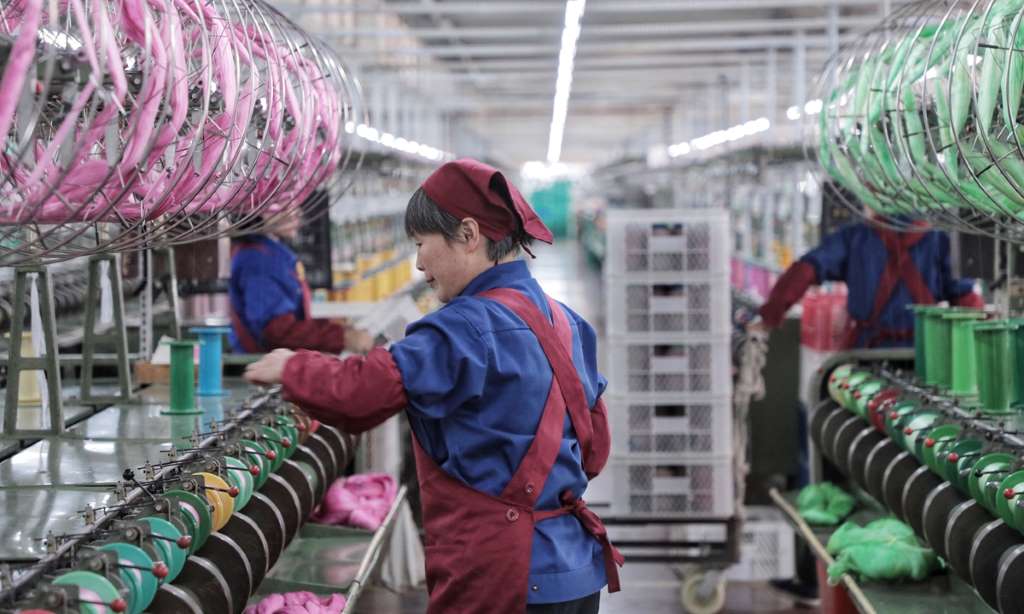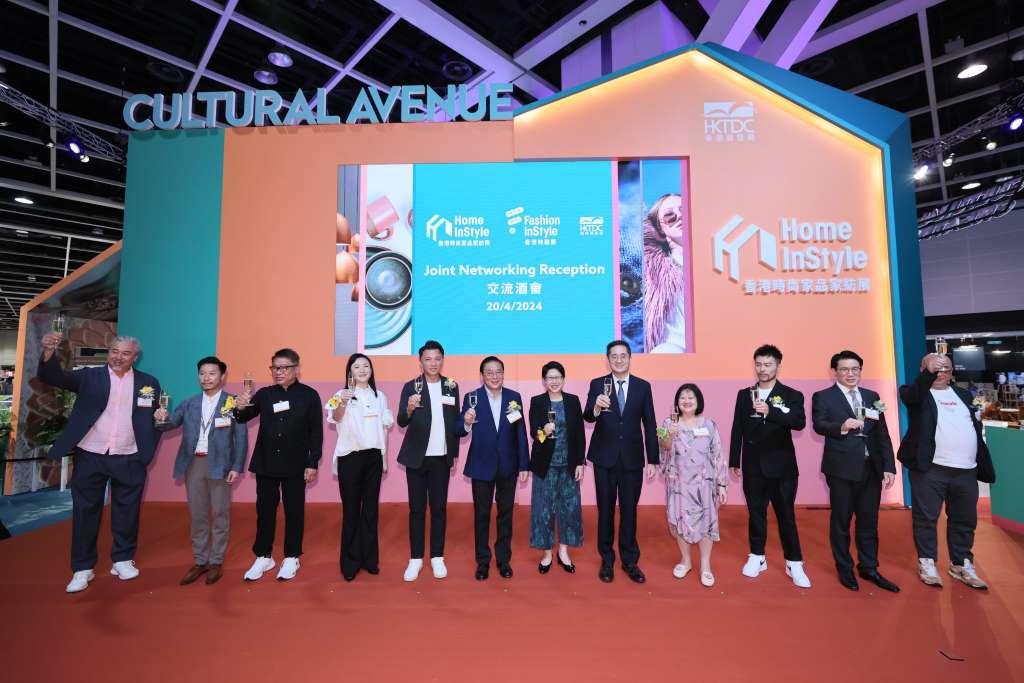FW
Renowned for its edgy and unique fashion, AllSaints has recently joined the ranks of premium brands at the Silverburn Shopping Centre in Glasglow. Alongside names like Flannels, Rituals, and The White Company, this addition played a significant role in driving Silverburn’s footfall to over 15 million for the first time last year, underscoring the appeal of its offerings.
Visitors to Silverburn can now anticipate finding AllSaints’ signature style staples, ranging from leather jackets, jeans, and hoodies to patterned dresses and classic white t-shirts, along with a selection of accessories.
Frankie Mallinson, Retail Director, AllSaints, states, the latest store at Silverburn will unveil the brand’s ‘Access all Areas’ collection for 2024. The brand has also retained its core collection featuring iconic leathers and bold dresses.
David Pierotti, General Manager, Silverburn, affirms the retailer’s commitment to delivering a top-tier retail and leisure experience for all guests. He comments, attracting renowned brand names like AllSaints enables Silverburn to provide an exceptional shopping and entertainment environment.
The 16th edition of the Bangladesh Denim Expo aims to redefine the essence of denim by embracing new technologies and forward-thinking approaches.
To be based on the theme ‘Reimagine,’ the event, from May 06-07, 2024 in Dhaka, the expo will showcase the latest innovations and trends in the denim industry.
According to Mostafiz Uddin, Founder and CEO, Bangladesh Apparel Exchange (BAE), signifying a departure from conventional norms, the theme, ‘Reimagine’ explores new territories to create a visionary and transformative denim experience.
The expo aims to revolutionise every aspect of the denim production from sustainable practices to cutting-edge design techniques.
With over 60 exhibitors from 11 countries including Bangladesh, India, China, Pakistan, Turkey, Italy, France, Spain, Switzerland, Vietnam, and Japan, the event promises a diverse array of participants representing various segments of the denim industry. These include fabric mills (both denim and non-denim), garment manufacturers, washing laundries, accessories and trims suppliers, chemical companies, machinery and technology providers, as well as logistics firms.
Among the participants are notable names such as Archroma Management LLC, Artistic Milliners, Bluesign Technologies AG, Denim Solutions, etc, showcasing their latest products, innovations, and sustainable practices.
Serving as a platform for industry stakeholders to shape the future of denim, the Denim Expo continues to be a driving force in reshaping the global denim landscape.
The Board of Directors of Salvatore Ferragamo SpA, the parent company of the Salvatore Ferragamo Group, convened under the leadership of Leonardo Ferragamo, Chairman, reaffirmed the appointment of Marco Gobbetti as the Chief Executive Officer of the Company.
Gobbetti's tenure will extend throughout the current term of the Board of Directors, concluding with the Shareholders' Meeting slated to approve the financial statements for the year ending December 31, 2026. Additionally, the Board granted Gobbetti powers consistent with those he previously held, including his role as General Manager of the Company.
Furthermore, maintaining continuity with their previous mandates, the Board authorised proxies to Leonardo Ferragamo Chairman and Angelica Visconti, Vice-Chairman Angelica Visconti. The Board's forthcoming meeting on May 9, 2024, will entail a review of the independence criteria outlined in the Consolidated Law on Finance and the Corporate Governance Code of Borsa Italiana S.p.A. Directors who declared their independence upon candidacy will undergo assessment, alongside the reconstitution of Committees stipulated by the Corporate Governance Code.
During the same session, subject to the favorable opinion of the Board of Statutory Auditors, Pierre La Tour, Group Chief Financial Officer, was appointed as the Manager responsible for preparing financial reports as per Article 154-bis of Legislative Decree No. 58 of February 24, 1998 ("TUF"). His appointment is effective April 24, 2024, and will last until the conclusion of the current Board's term.
Once adorned with flourishing cotton and silk mills, Tumkur in Karnataka is grappling with the gradual decline in its textile industry.
The textiles sector in Tumkur currently faces a multitude of challenges including labor shortages, dwindling exports, and bureaucratic red tape. In dire need of revitalisation, the industry in the Karnataka town is grappling with slow subsidies and pending approvals that continue to stunt growth and progress. Entrepreneurs in the town are clamoring for policy reforms as they strive to navigate through the adversity.
Hafeezur Rahman, Techmax Structurals, laments, the sector is impacted by labor shortages and escalating export rates. These challenges are further exacerbated by the allure of cheaper labor in countries like Bangladesh and China. Revitalisation of the sector is paramount to address the employment crisis and boost foreign exchanges in the town, asserts Rahman. He urges the government to strengthen the micro, small, and medium enterprises (MSMEs) in the town to drive its economic growth.
Rahman opines, mere financial allocations from the government won't suffice. Rather, the state needs to introduce initiatives that aid enhance quality, modernisation, and workforce training within the industry. A dedicated special economic zone (SEZ) needs to be established to spur the sector’s growth, he adds.
Ronald, Business Head, MAF Clothing, underscores the challenges posed by water and land scarcity, which hamper crucial operations within the industry. He urges the government to offer robust wage incentives at the national level to attract and retain skilled laborers.
Prabhu SR, a Tumkur-based industry consultant, emphasises on the urgent need for policy implementation and timely disbursement of loans to rural businesses. Anchored by 18 firms, Tumkur's textile landscape with giants like Shahi Exports and MAF Clothing leading the charge, collectively employs thousands of laborers who shape the city's economic narrative.
Against this backdrop, Karnataka's new textiles and garment policy seeks to reposition the state as a premier destination for textiles and apparel in the country. With ambitious goals of stimulating the industry and creating half a million jobs within five years through investments worth Rs 10,000 crore, the policy signals a ray of hope for Tumkur's beleaguered textile sector.
In Q1 FY24, the net revenues of Prada SpA by 16 per cent at constant exchange rates to €1.19 billion ($1.27 billion) as against the analysts’ expectations of €1.17 billion jumped as the Italian fashion group, which also owns Miu Miu continues to outperform its biggest rivals.
The brand’s performance was particularly strong in Asia Pacific, including China, which a year ago was reopening after the strict lockdowns of 2022. Appreciating the brand’s performance Patrizio Bertelli, Chairman, says, the brand performed exceptionallywell even amidst a challenging market environment.
During the quarter, the Lyst index ranked Miu Miu and Prada amongst the hottest brands in the world. In particular, the analyst Lyst pointed to a popular sneaker collaboration between Miu Miu and New Balance.
The strong performance of Prada stands in sharp constrasts to the weak results of its French rival Kering, whose biggest brand Gucci is facing a tough turnaround as it seeks to reposition itself in a more exclusive segment.
Miuccia Prada, the granddaughter of the group’s founder, is creative director at Miu Miu and splits those duties at Prada with Raf Simons.
Surpassing analysts’ expectations, demand for luxury products by Hermes increased by 17 per cent at constant exchange rates to €3.8 billion ($4.1 billion) during Q1FY24.
Revenues of the brand in key Asia markets excluding Japan rose by 14 per cent to €1.92 billion during the quarter. Additionally, its leather goods and saddlery division outperformed estimates with robust 20 per cent growth.
Known for its appeal to the most affluent clientele, Hermes has weathered the challenges facing the luxury market with notable success. This stands in contrast to the struggles of Kering SA, particularly in its efforts to revitalise its flagship brand, Gucci, a process that is proving to be time-consuming.
Although Hermes noted a decline in foot traffic in Greater China, particularly in March, following the Chinese New Year, purchases of higher-end leather, ready-to-wear, and jewelry items increased during the period. Eric Du Halgouet, Chief Financial Officer explains, number of customers opting for more affordable products like silk scarves declined slightly during this period. However, there was a notable uptick in those splurging on luxury goods.
Hermes' perfume and beauty, as well as silk divisions grew by 4.3 per cent and 7.9 per cent, respectively, throughout the quarter.
Renowned for its high-quality sewing and embroidery threads, German-based company Amann has inaugurated its maiden production plant in India. Located in Ranipet, Tamil Nadu, this facility marks a significant milestone for the company as it expands its footprint into the Indian market, catering primarily to the leather and apparel industries.
Equipped with a state-of-art technology, the plant is Amann’s most sustainable production site till date, says Peter Morgalla, Chairman. Spanning across 32,000 sq m, the plant aims to create employment opportunities for 200 individuals.
Notably, Amann has installed a Zero Liquid Discharge unit at the plant to ensure minimal water wastage and prioritise environmental sustainability. The plant relies on renewable energy sources, with a substantial portion of its energy needs met through photovoltaic systems and nearby wind and solar parks. Biomass fuels the boiler required for steam production, essential for the dyeing process of threads, further underscoring the company's commitment to eco-friendly practices.
The plant offers efficient delivery options and reduced lead times across Asia. Additionally, the company commits to providing technical advisory services to empower customers to maximise the potential of its products.
Sanjeev Grewal, Managing Director, Amann, attributes the company’s success to longstanding partnerships with both global brands and Indian clientele. Established in 2007, Amann has sales offices in Chennai, Bengaluru and Gurgaon. The company remains dedicated to maintaining its position as a leader in quality and innovation within the Indian sewing thread industry.
Amann, a German-based company, has inaugurated its inaugural production facility in Ranipet, Tamil Nadu, marking its entry into the Indian market. Specializing in sewing and embroidery threads for the leather and apparel sector, the plant emphasizes sustainability and cutting-edge technology, aiming to minimize environmental impact.
Peter Morgalla, Chairman of Amann India, expressed pride in the launch, highlighting the plant's strategic significance in facilitating efficient delivery and short lead times across Asia. Additionally, the facility will offer technical advisory services to optimize product utilization for customers.
Spanning 32,000 square meters, the plant is expected to create job opportunities for 200 individuals. Notably, Amann's commitment to sustainability is evident through investments in a Zero Liquid Discharge (ZLD) unit and renewable energy sources like photovoltaic, wind, and biomass systems.
Sanjeev Grewal, Managing Director at Amann, emphasized the company's gratitude for its enduring partnerships and its dedication to maintaining a leading position in India's sewing thread industry.
Established in India since 2007, Amann's expansion underscores its commitment to serving the growing demand in the region while upholding its reputation for quality and innovation.
India's cotton stocks are set to plummet by almost 31 per cent in the 2023/24 period, hitting their lowest levels in over three decades, reports the Cotton Association of India (CAI). This decline, driven by decreased production and increased consumption, may curtail exports from the world's second-largest producer, impacting global prices positively. However, it could spell trouble for domestic textile firms, potentially inflating local prices and squeezing margins.
Projections indicate that by the end of the marketing year, cotton stocks could dwindle to a mere 2 million bales (340,000 metric tons). CAI forecasts India's cotton production for the current season at 30.97 million bales, a slight decrease from the previous year's 31.89 million. Meanwhile, domestic consumption is anticipated to rise to 31.70 million bales compared to 31.10 million previously.
Despite the impending shortage, CAI predicts an uptick in India's cotton exports for the season, estimating a rise to 2.20 million bales from 1.55 million last year. India primarily exports cotton to major destinations including China, Bangladesh, and Vietnam.
International Market Analysis Research and Consulting Group (IMARC Group) recently released a thorough analysis titled “Cotton Yarn Manufacturing Plant Project Report 2024,” offering a detailed roadmap for establishing a cotton yarn manufacturing plant. Covering a broad spectrum from market dynamics to operational intricacies, the report delves into unit operations, raw material requisites, infrastructure essentials, machinery specifications, and logistical prerequisites.
Beyond operational details, the report delves into the cotton yarn manufacturing process, project economics, and financial analysis. Crucial metrics such as capital investments, operating expenses, and expected ROI are meticulously explored, equipping entrepreneurs with invaluable insights for informed decision-making.
Cotton yarn, renowned for its versatility and comfort, remains a cornerstone of the textile industry. Its widespread use in clothing, home textiles, and industrial applications underscores its significance. Market growth is propelled by burgeoning demand in apparel and home furnishing sectors, coupled with a shift towards sustainable fibers like organic cotton. Furthermore, the surge in hand knitting and crochet hobbies contributes to market expansion.
With evolving consumer preferences emphasizing sustainability and quality, the cotton yarn market is poised for continuous growth. IMARC Group’s comprehensive report serves as a strategic tool for stakeholders navigating this dynamic landscape, facilitating successful ventures in cotton yarn manufacturing.












